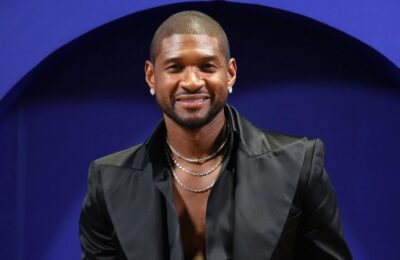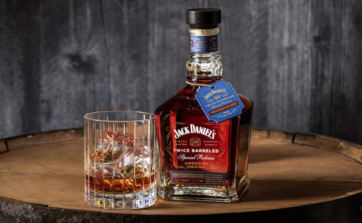Former NFL and CFL player, Brandon London, who just recently joined the national daytime talk show Daily Blast Live as a co-host, was asked last Friday to respond to Donald Trump’s tweets calling for players to be suspended without pay for protesting during the national anthem.
London began by speaking directly to Trump, chastising him for attempting to flip the script on the protests and reminding him that sports are the avenue through which many professional athletes, specifically black men, were able to better their lives. He then responded to co-host Sam Schacher’s point that he is also the grandson of a veteran of the Vietnam War, and answered her question as to whether or not he would kneel during the anthem if he were in the league today.
“I remember talking to my grandmother — [My grandfather] had come back from being on a tour in Africa and they were in Charlotte, North Carolina and they were refused service,” said London.
“This stuff is still going on right now … I would stand for the national anthem. I don’t think I’ve ever really stood there and put my hand over my heart. If one of my brothers, my teammates, were taking a knee – I would respect that.”
As powerful as his words were, it was co-host Al Jackson’s response that took the conversation to a new place. In what has since become one of the most viral TV moments of the year, he challenged his colleagues and viewers to not just acknowledge but actually sit with the uncomfortable reality of London’s words.
“Are we done talking about this or are we going to talk about stupid Casey Affleck? Are we ready to have a serious conversation?” Jackson said, addressing his co-hosts. “Are we going to give this conversation the breadth and the time it deserves or are we going to talk about the next James Bond? What do you guys want to do here?”
Co-host Jeff Schroeder prompted him to continue.
“I love what Brandon said but it makes me sad that we have to sit there and Brandon has to justify who he is in this country,” Jackson said. “He has to have a picture of his grandfather serving. Do people understand that the Tuskegee experiments where they injected black men with syphilis was going on into the early 70’s? … You look at pictures of his grandfather and it looks black and white like it happened 120 years ago. That’s happening now. The people that came home from Vietnam were treated like trash. Black and white.”
Jackson continued, re-emphasizing London’s point about how one side of the argument continues to change the conversation from the actual point of the protests – drawing attention to police brutality and calling for social justice – by calling the protest disrespectful to U.S. veterans.
“Let’s have a conversation about vets. We don’t do anything for our vets,” said Jackson. “The mental health situation is so lacking that most of them don’t even seek mental health. And because of that they are laying on the street right outside of this place. We step over them on our way to a nice restaurant and we go and give them lip service while we get hammered in the back yard watching a football game, talking about ‘God bless America’. No. Very few people in this country doing anything for our vets.”
The show immediately recognized the weight of the conversation as the hosts displayed genuine emotion while both London and Jackson spoke, and they continued to discuss the topic — even giving viewers the chance to chime in on social media and have their comments read aloud on the show, regardless of whether they agreed or disagreed.
As the vocal public has become more and more divided, its also become more rare for talk shows and news programs to have legitimately honest, thoughtful, uneasy and sometimes awkward dialogue about social issues. Sports media, and NFL media in particular, should take note of how much their conversation has resonated with people.
London and Jackson refused to appease viewers, or even their own producers and peers, by watering down the conversation, and the thoughtful and genuine response from their colleagues was a breath of fresh air — a reminder that apathy, condescension and outrage don’t have to define these types of discussions on TV. (By: Tanya Ray Fox)








